5 tools you’ll wish you’d bought sooner
There are always more tools to buy, whether we need them or simply want them. Most at-home wrenchers have some version of a “man, I wish I had one of those” list, but not all medium- to high-priced tools deserve to remain on the wishlist simply because a cheaper version exists. Any tool in your shop is an investment, and putting more dollars into a purchase is sometimes wiser than holding out or scraping by.
We pulled together five of our favorite tools that, in hindsight, we would have invested in sooner.
A nice set of jack stands
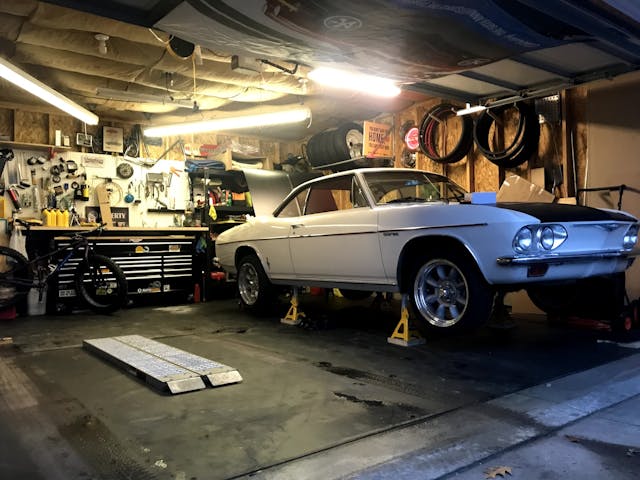
Let’s start off with the basics: Tools that most home wrenchers already have but could likely stand to upgrade.
Jack stands are literally the only thing keeping you from becoming an uncooked organic pancake on the shop floor. Not only should you not be cheap here, you should err on the side of spendy. Jack stands can be purchased for for very little money from places that rhyme with hazard-fraught, but why subject yourself to questioning whether that wiggle was “just normal”? Buy a set of stands with more metal than the hull of the Titanic and use them religiously. It’s nearly impossible to wear them out—we implore you to try.
Drill press
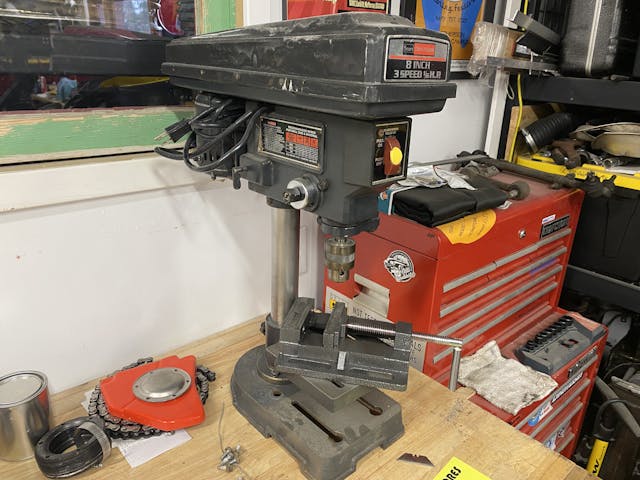
Space is a premium in every home shop. Dedicating some floor or bench space to a drill press can feel like wasting space, but the ability to accurately put holes in objects is invaluable. You will soon find yourself building jigs and, even if you don’t use it every day of the week, finding it more useful than you ever imagined.
We love using a drill press to start taps at a perfectly perpendicular angle by tightening the tap in the chuck and the workpiece in a vice. Use the quill to apply even and straight pressure while hand-turning the chuck (drill unplugged!) until the tap is started, then pull the workpiece and attach a tap handle to finish the job. Cheap drill presses can be just a few hundred dollars. Used, medium-duty pieces can be just under a thousand and last your entire lifetime if well maintained.
Welder
The ability to permanently join metal is a superpower. With few exceptions, you have no reason to deny this to yourself. Inverter welders have smaller footprints and friendlier prices than ever—you will likely spend more for scrap metal to practice on than you will for the welder itself. Welding can be intimidating, but an evening class at a local community college goes a long way to learn proper technique and build relationships that make advice a phone call away. A welder often provides another solution to some common problems when wrenching on old cars, like corroded or broken hardware.
As big a bench as you can afford
The floor is sometimes the only place to work, but if it becomes your go-to space for disassembly or diagnosis, you will tire of projects quickly. Mount a bench to the wall or put it on wheels to make it mobile, but build it as big as your space allows. (You will still want more space in the future, trust us.) When you do, look into adding work tops to toolboxes or other horizontal things you already have. Who says you can’t have storage and a workspace?
A quality drill index
Two ways to go about this one: Buy what you need as you need it, or buy once and be happy you aren’t making trips to the hardware store covered in grease right before closing because you need a specific bit. A quality drill index feels über expensive when popular sizes come in $5 blister packs, but those cheap bits rarely hold up to much use. Also, they often don’t contain the proper wire gauge sizes you will need if you get into any fabrication or thread repair. Sure, you can do conversions to an SAE or metric size and have it be “good enough,” but are you really going to settle? For the money, you shouldn’t.
Have an addition to this list? Leave it in a comment below.

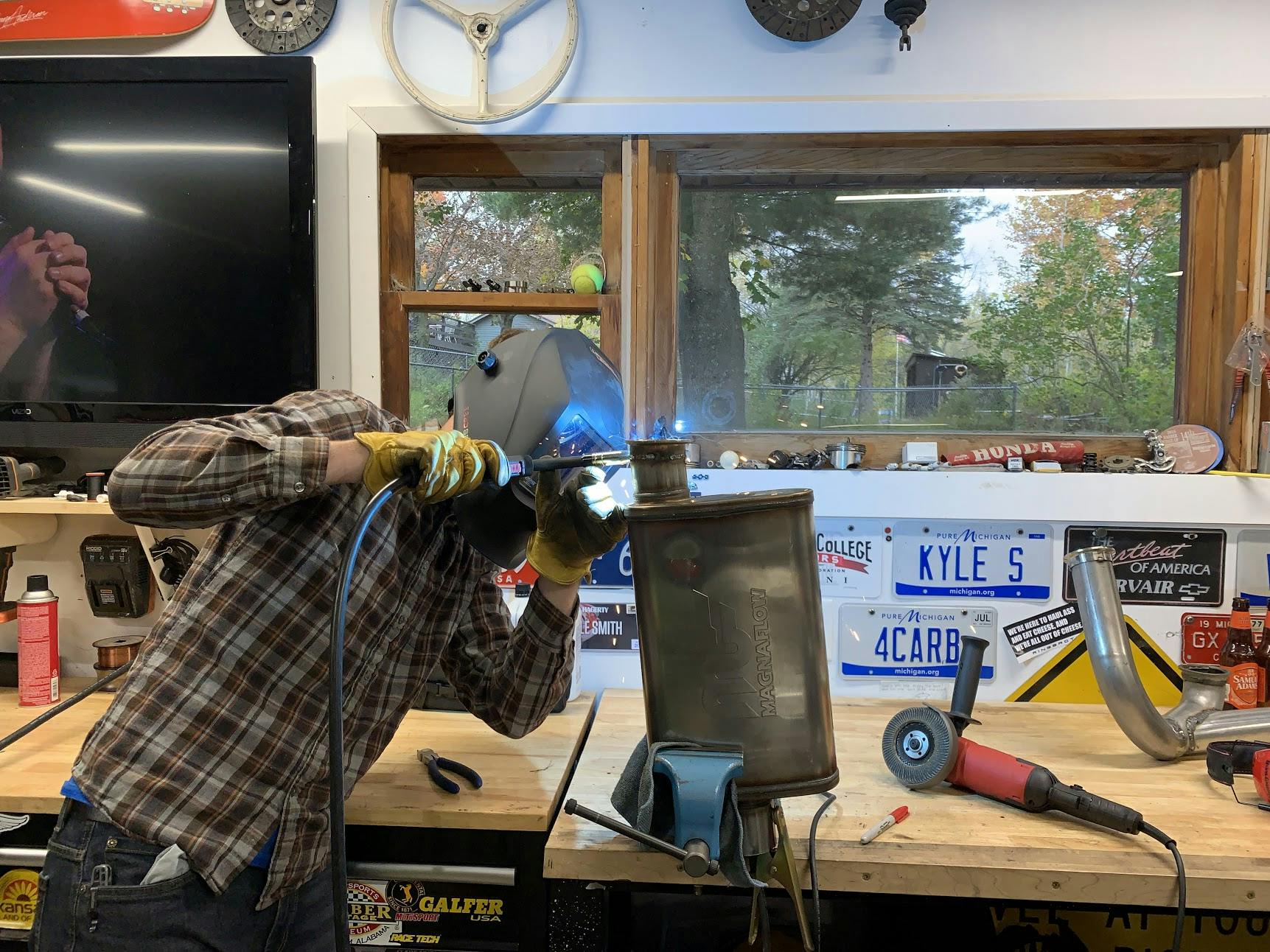
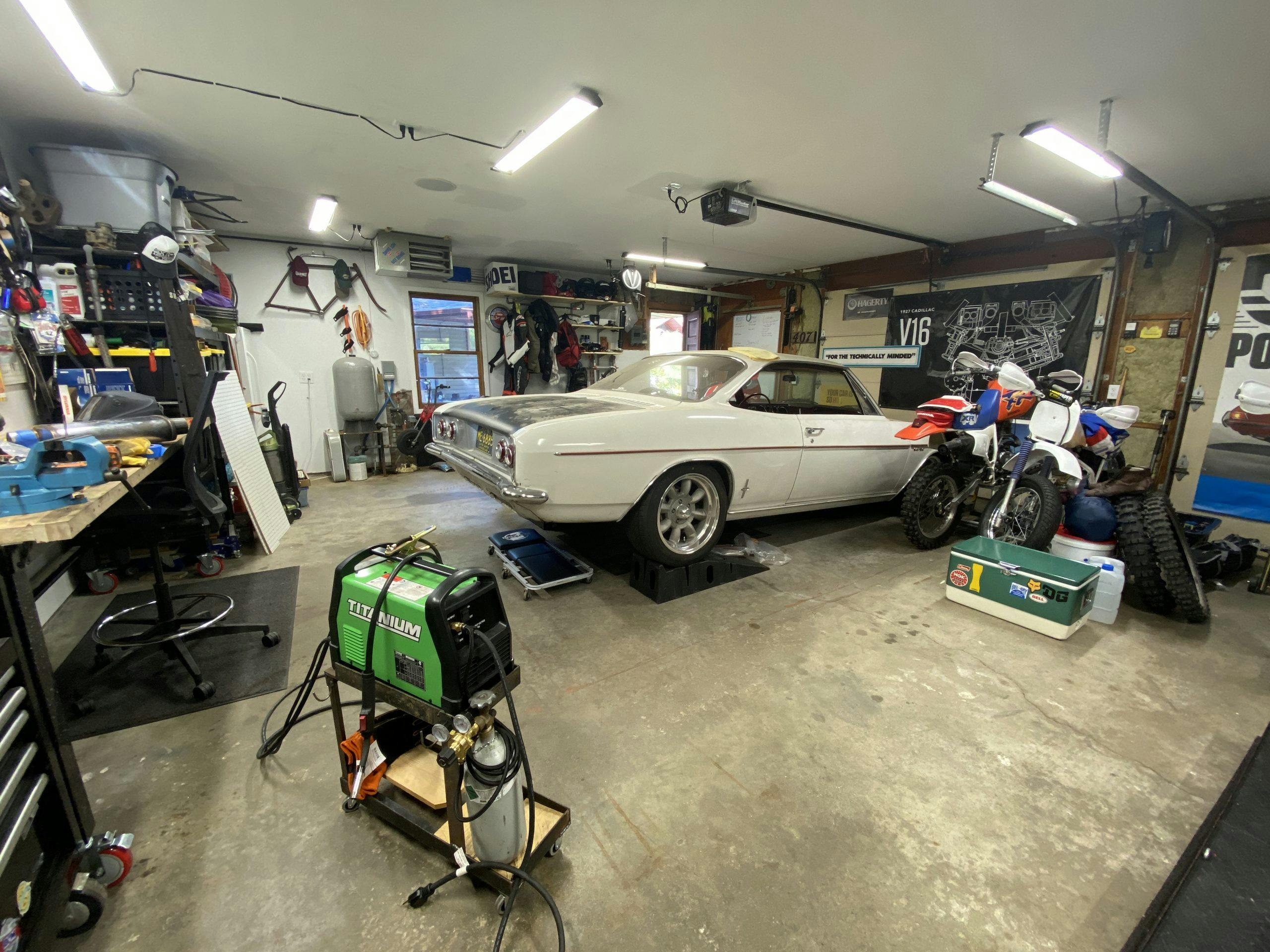
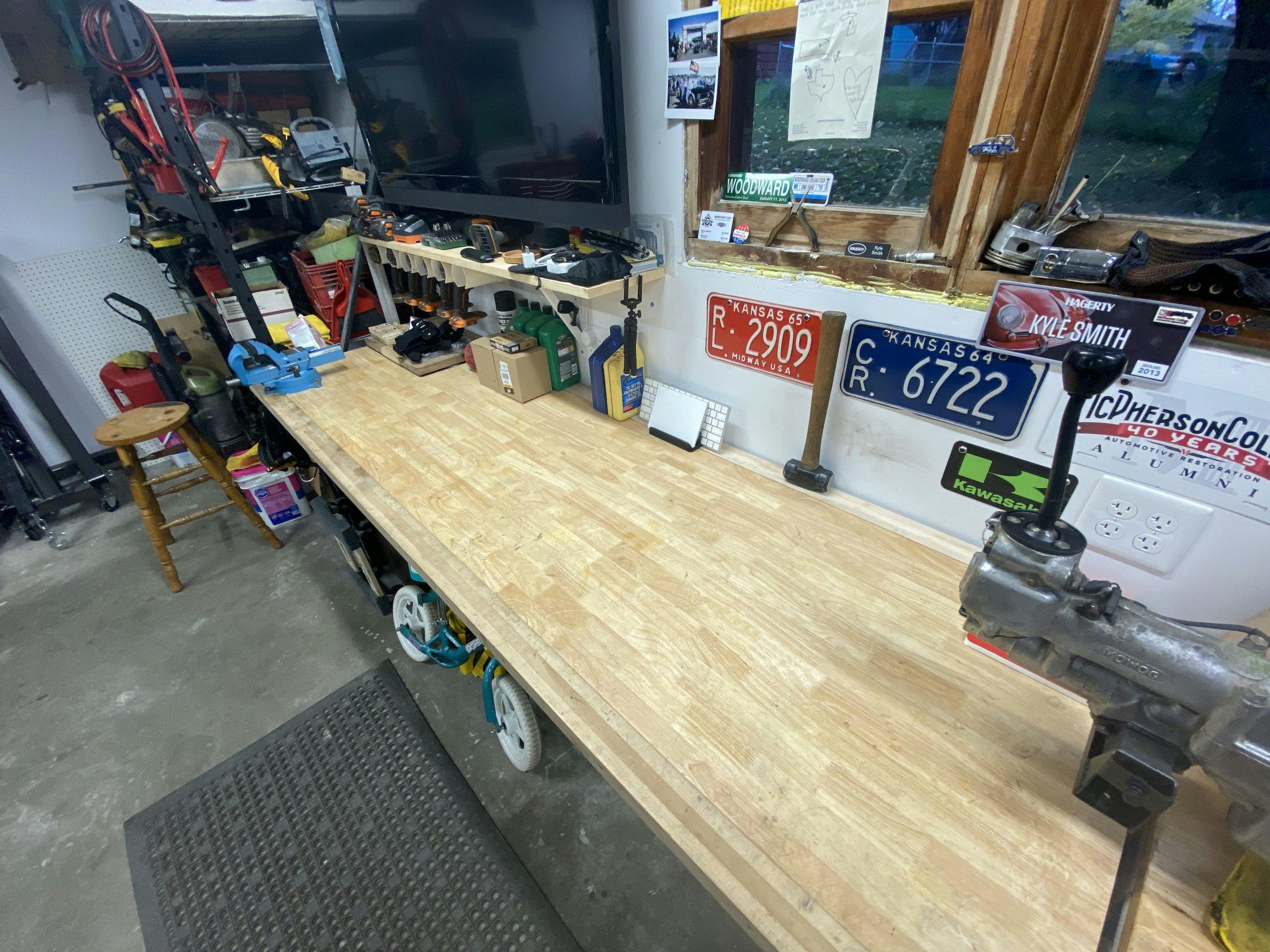
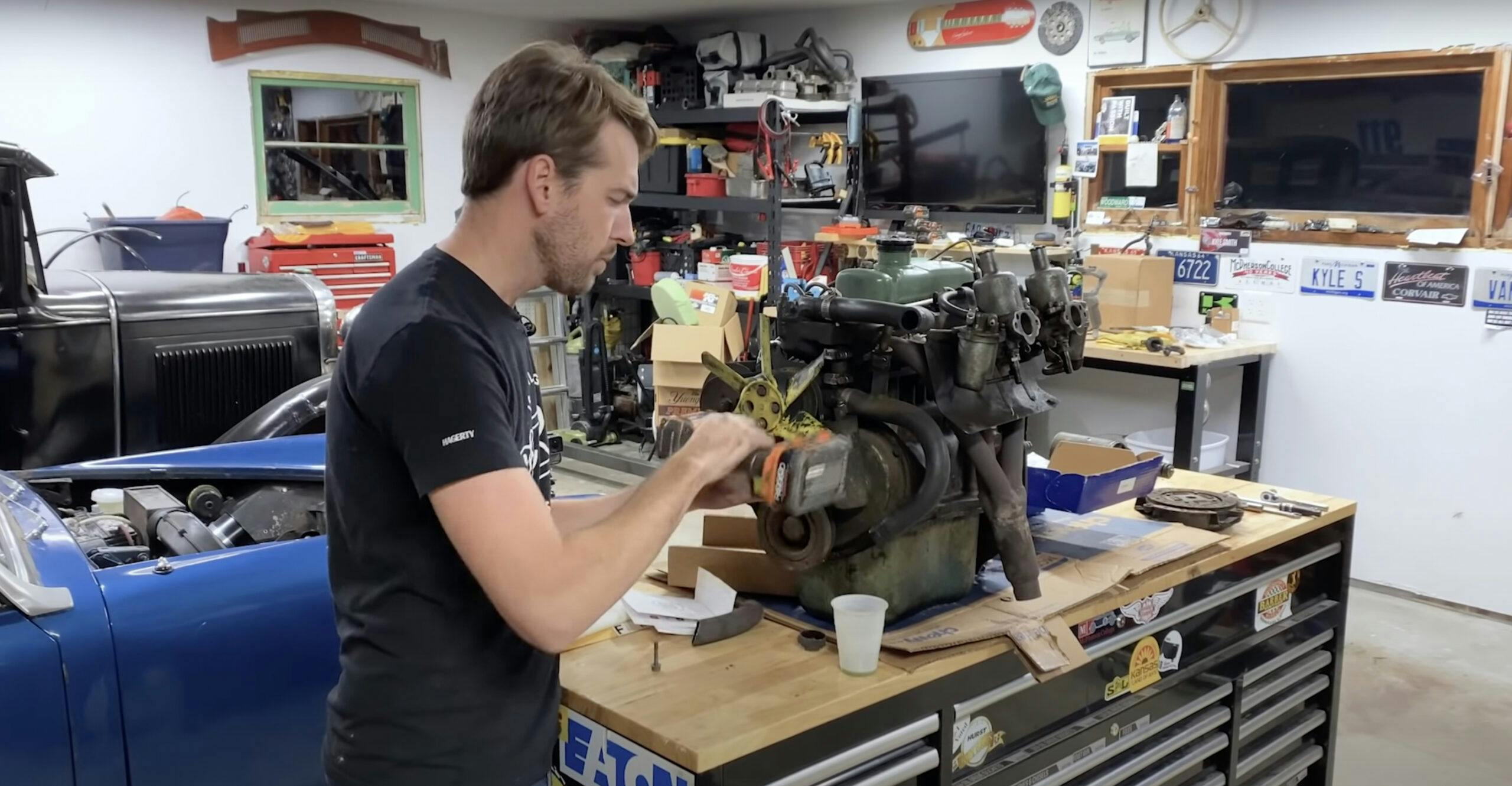


Time to make my Christmas list
The best addition to my garage has been a Quick Jack. My two car man cave just does not have the room ( or height) for a full sized lift. The simple portable jack gives me all the lift needed for just about any task up to and including 911 Porsche engine removal (using extensions).
In Texas, I’d add an air conditioner. I cut a hole in the wall and installed an inexpensive window unit. Best $200 I ever spent.
If you do any kind of painting, a paint shaker. Finally bought one after a few years of painting. It’ll save your hands from cramping up trying to stir paint and you’ll save A LOT of time. 60 seconds on the shaker vs 20 minutes of hand stirring adds up.
Boroscope. They are cheap and take photos and video in tight spaces that you can look at right on your phone.
The best money-saving and time-saving tool in my shop is a drill bit sharpener. If my “Drill Doctor” died today, I’d have a new one tomorrow.
The best tool for problems in the garage is YouTube.
My top ten are:
1. Snap-on Flank Drive Plus combination wrenches. They add worth the premium you pay. They get the job done without the bruised and skinned knuckles and rounded off fasteners that the $200-$300 sets give.
2. Gray Tools / Snap-on / MAC Tools socket sets and ratchets, etc. for the same reasons as above.
3. 26 gallon 2 cylinder oil lubricated Campbell-Hausfeld air compressor. This makes a big difference with air tools that still out-perform lithium-ion battery powered tools.
4. 3/8″ and 1/2″ drive Ingersoll-Rand air impact wrenches. These offer much better quality, especially on the titanium housed tools, and most importantly, ability to jar stuck nuts and bolts free with instantaneous bursts of torque when required. Lithium-ion battery powered tools have a slow ramp-up start that just doesn’t get the job done sometimes.
5. Auto manufacturer supplied special tools. The most used ones I have are the Honda oil filter cap wrenches. They are made of welded heavy gauge chromed steel with right angle profile to grip the flats on the end of the filters without slipping. Night and day difference compared to filter cap wrenches made of stamped sheet metal or plastic that always slip.
6. Articulating angled oil funnel that screws securely into the valve cover oil fill port, even on V6 and V8 engines. The AST (Assenmacher Specialty Tools) brand is pretty much the gold standard for these. They make various adaptors that screw into the oil fill ports of every major auto manufacturer. No more messes from the funnel tipping as you pour from gallon-size jugs.
7. The Noco Genius 10 battery charger / repairer / maintainer. As I said in another post, this ain’t your grandfather’s old battery charger, by a long stretch. Noco uses specific voltage ramping to charge. My recent experience reviving a battery that would not accept a charge from the old-fashioned charger I had for 30 years really opened my eyes. The Noco Genius 10 cost me about $130 on sale, and has already earned its keep.
8. A Fluke multimeter. They are built to last and are the professional’s choice for good reason. They give accurate measurements. Add to this a DC current clamp probe. It allows you to non-intrusively take current readings on any wire the clamp is big enough to fit over. I use a Snap-on DC current probe with my Fluke multimeters to measure things like alternator charging level and parasitic load current when a vehicle is shut off.
9. Service manuals. The original printed shop manual for each vehicle I own (except for the latest models that are only available electronically) make all the difference in getting the job done right the first time. Aftermarket manuals from Haynes, Chilton and others can be quite helpful, depending on the depth of detail provided. Also, watch for service bulletins usually published in electronic form. These can give you important updates on better ways to correctly service your vehicles.
10. A clean, organized work space. Buy a tool box that has enough room for all of your tools. It needs to make it easy to find the right tool quickly. This goes a long way to making working on your cars more enjoyable. Also, have cupboards and parts bins to keep consumables and commonly needed parts organized and readily at hand. Labeling the important drawers and doors with an electronic labeler really helps.
I keep a fairly good quality drill index on my workbench…
And…
I keep one good high quality drill index in my toolbox and only use it when I am working on something that really needs accuracy or I don’t have a back up bit to replace the one I broke or destroyed from my bench index.
I also hand sharpen my own bits on another piece of equipment every shop should have …..
A good quality bench grinder, grinding wheel on left and wire brush on right.
I also sharpen-flatten the grinding wheel at a slight angle where the high point is on the right.
It gives you more surface area and a sharp corner for a lot of reasons
Both the article and several replies have mentioned a “good quality drill index” – and I’m hard pressed to figure out what is the brand I should look for. I’ve tried several brands and have not yet landed on the “good quality” one yet. I have a big of Craftsman black bits I bought in the ’70s that have served pretty well, but a few have finally either broken or been lost, and any replacements I’ve tried have been sub-par. (Craftsman sure isn’t what it used to be for quality, IMO.)
Would any of you readers (or even Kyle himself) care to share what brand you use and consider to be of top quality? I, at least, would appreciate your thoughts! 🙂
A very good article. I also find some really good hard to find tools at swap meets. I carry a list in my pocket so I don’t forget one. Especially good for early ford tools.
Transfer punches are handy when trying to make brackets or anything that needs to match up with something that already has holes.
You must have a heat pump. Heat in the winter, cool in the summer. Keeps the car comfortable and prevents rust. Real pleasure to work under those conditions.
A quality mechanics seat and creeper.
love the garage, Kyle…my first car was a Corvair Corsa, and the second an MG Midget (although yours looks like a MkII Sprite. Great article.
I have a well-stocked garage but, two things I don’t know how I got along without are my lathe and mill. I saved thousands alone on just the special tools I’ve built. One of my last little projects was a small adapter I made so I could use my valve spring compressor to pull valves out of a Jaguar overhead cam head.
built one of my workbenches from an old gas grill. took the grill off, put at 6 foot piece of formica on it. has never failed, plus I can roll it around